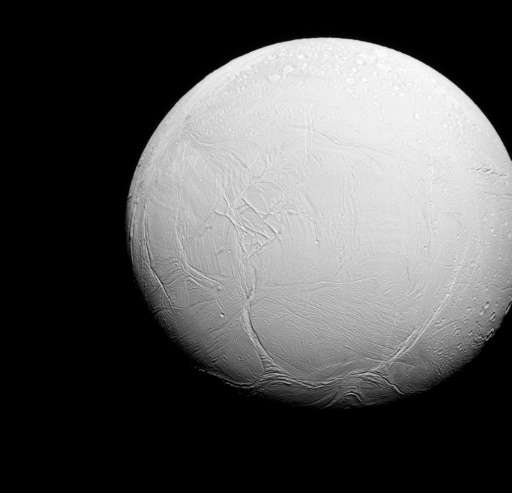NASA spacecraft plunges through Saturn moon's icy spray

On the hunt for alien worlds that might support life, NASA's unmanned Cassini spacecraft has survived its closest-ever dive through the icy spray coming from Saturn's moon Enceladus.
The flyby took place Wednesday at 11:22 am (1522 GMT), NASA said.
The probe skimmed 30 miles (49 kilometers) above the moon's southern polar region, sampling and collecting data on the spray that is believed to emanate from a subterranean ocean.
While the spacecraft is not equipped to detect life, scientists hope that the pass will give them a better understanding of what is contained in the icy spray, how much there is, and if conditions might be hospitable to life.
The first images are expected in the next 24-48 hours, NASA said.
"Mission controllers established two-way communication with the spacecraft this afternoon and expect it to begin transmitting data from the encounter this evening," NASA said in a statement late Wednesday.
The tiny moon orbiting the sixth planet from the sun stunned scientists when they discovered it had an icy plume in 2005.
After years of observations, NASA announced earlier this year that Enceladus definitely has a subterranean ocean, widening the search for alien life in our solar system.
The $3.26 billion mission is a joint project by the US space agency, European space agency and Italian space agency.
Cassini is the first spacecraft to orbit Saturn, and it has been circling the planet since 2004.
© 2015 AFP





















